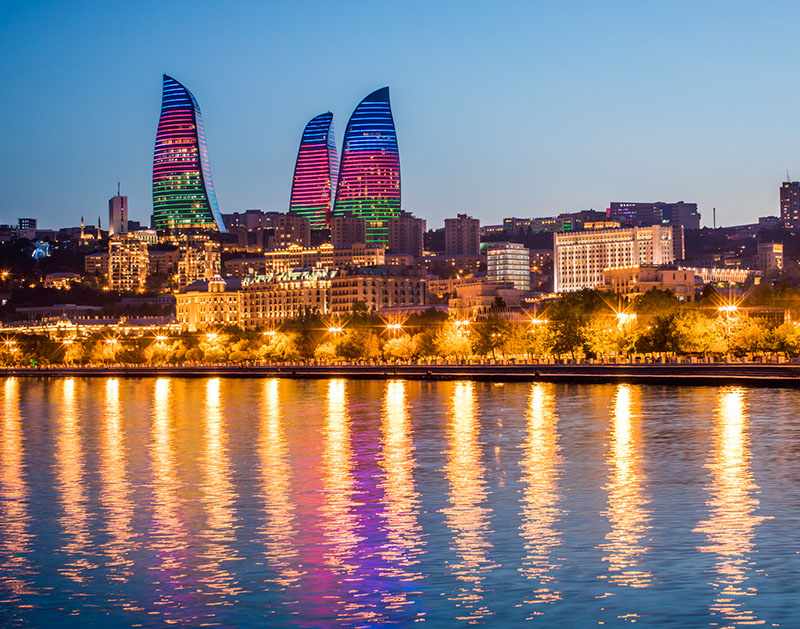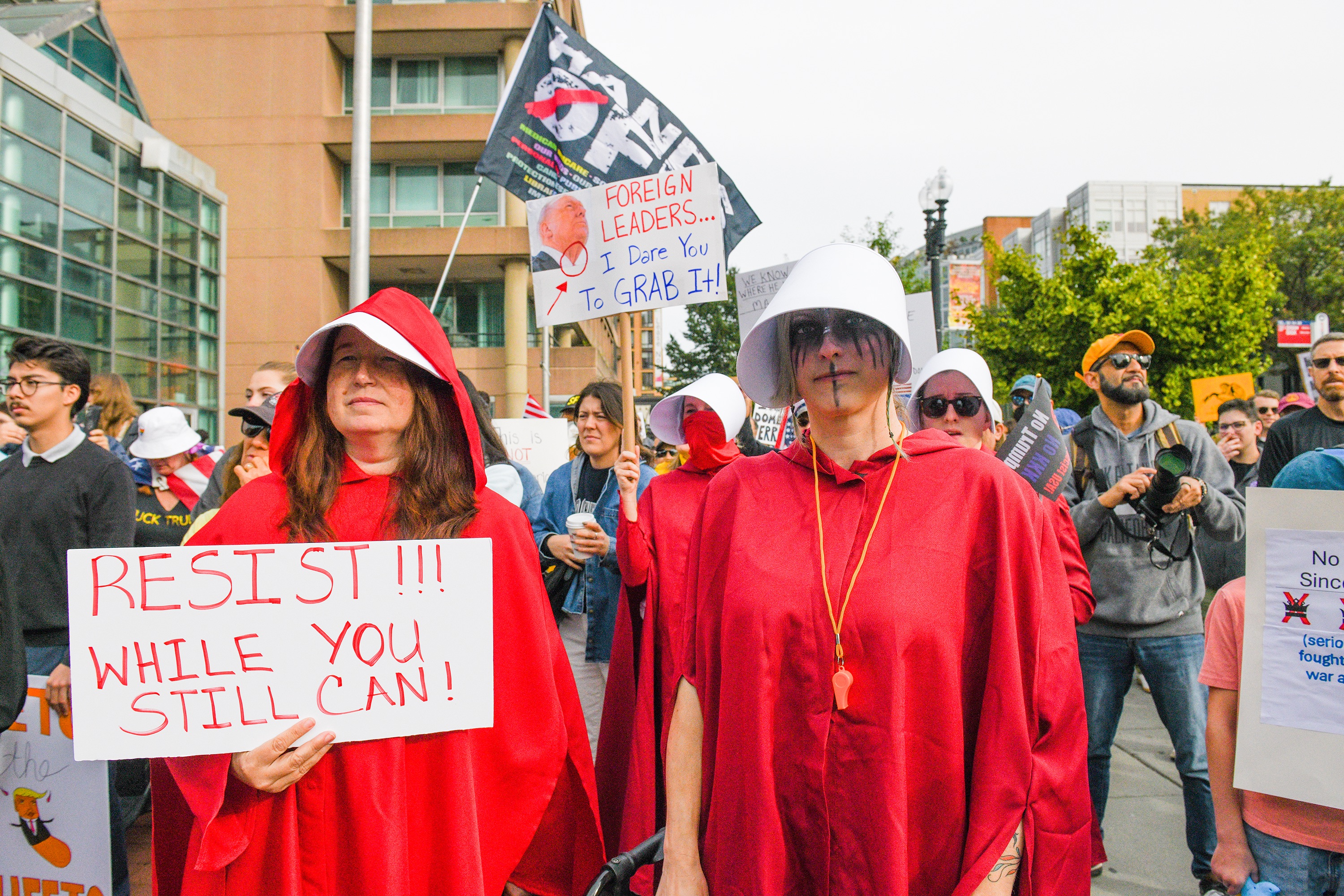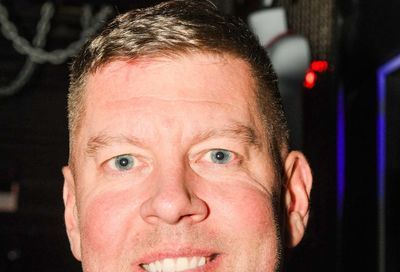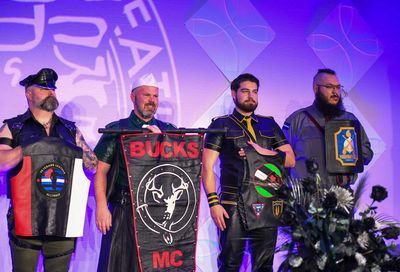Trump to Cut Off Suicide Lifeline’s LGBTQ Counseling Services
Effective July 17, the 988 Lifeline will no longer offer callers the option to access LGBTQ-specific counseling.

Despite pleas from LGBTQ advocates and allies, the Trump administration will officially shut down the national suicide prevention hotline’s support services for LGBTQ youth.
Previously, callers to 988 — the National Suicide and Crisis Lifeline — could select from a menu of options to reach counselors with experience serving specific groups, such as veterans, Spanish-language speakers, or LGBTQ youth. The latter could be reached by pressing “3” from the menu options.
But effective July 17, that option will no longer be available to LGBTQ youth.
According to the Substance Abuse and Mental Health Services Administration, the LGBTQ youth service on 988 has received 1.3 million calls, texts, and chat messages since launching three years ago. In February alone, during the early weeks of Trump’s second term, the service averaged 2,100 daily contacts from LGBTQ youth in crisis.
Kevin Wong, senior vice president of marketing, communications, and content for The Trevor Project — the nation’s most prominent LGBTQ suicide prevention and crisis intervention organization, and one of seven groups fielding calls for LGBTQ-specific services — told Metro Weekly that the volume of calls seeking LGBTQ-competent counseling demonstrates a clear need for such services.
“When we are no longer providing that service alongside the other calls to the other contact centers in the subnetwork, a couple of things might happen,” Wong said. “An LGBTQ+ young person will not feel comfortable contacting 988 general services, or they will contact 988 general services, and may not receive LGBTQ-competent care. Or, they’ll still find their way to The Trevor Project — which we hope happens — but we will have reduced resources to be able to handle the increased volume of contacts.”
According to Wong, The Trevor Project handled roughly half of the calls routed to the LGBTQ subnetwork, assisting more than 500,000 youth. The estimated $25 million in federal funding it received for those services accounted for nearly one-quarter of The Trevor Project’s annual budget for the previous fiscal year.
[advert2]
With that revenue now drying up, the organization is “aggressively fundraising” through an “Emergency Lifeline Campaign,” seeking private donations to help close the gap. “We’re hoping to…work towards financial independence,” he said.
Wong noted that The Trevor Project’s own Crisis Services — which operate separately from the 988 hotline — will remain available, free of charge, to LGBTQ youth in the United States and Mexico. The service provides trained counselors who respond to texts, phone calls, and online chat messages from LGBTQ youth.
Plans to eliminate 988’s LGBTQ support services first surfaced in April, when a leaked copy of the 2026 U.S. Department of Health and Human Services budget revealed the cuts as part of broader efforts to reduce health-related spending.
In response, more than 100 celebrities — both LGBTQ and allies — signed a letter urging the Trump administration not to green-light the proposed budget cuts to 988’s specialized LGBTQ youth services.
They warned that LGBTQ youth are particularly vulnerable to suicide, with lesbian, gay, and bisexual teens more than four times as likely to attempt suicide as their heterosexual peers, according to the Centers for Disease Control and Prevention. Separate research shows that 40% of transgender individuals have attempted suicide at some point.
But according to Reuters, the White House Office of Management and Budget has characterized the LGBTQ support services as an attempt to indoctrinate youth into “radical gender ideology,” which the Trump administration has frequently used to defend its efforts to roll back LGBTQ legal protections.
Those who work with LGBTQ youth say the lack of LGBTQ-competent counseling could worsen feelings of isolation or depression — or discourage LGBTQ youth from reaching out to resources like the 988 Lifeline if they believe no one will sympathize or empathize with them.
“In my experience as a nurse working with youth and adults who have attempted suicide, tailored services can make a difference in a person’s mental health,” Kristen Choi, a psychiatric mental health nurse practitioner and health services researcher at UCLA, told the Washington Post in an email.
Wong told Metro Weekly that research from The Trevor Project indicates specialized services may be helpful in reaching LGBTQ youth experiencing mental health crises. According to a 2024 survey of LGBTQ youth, 84% of LGBTQ youth wanted mental health care, but only 50% were ever able to obtain it by any means. A similar 2021 survey found that more than 8 in 10 LGBTQ youth — across all demographic groups — said they felt it was important that a crisis hotline include a focus on LGBTQ-related issues for those who need it.
Kevin Wong told Metro Weekly that research from The Trevor Project shows specialized services can be critical in reaching LGBTQ youth experiencing mental health crises. According to a 2024 survey of LGBTQ youth, 84% said they wanted mental health care, but only 50% were able to access it.
A 2021 survey similarly found that more than 8 in 10 LGBTQ youth — across all demographics — believed it was important for a crisis hotline to include a focus on LGBTQ-related issues.
“I understand the desire to have general 988 be accessed by anyone,” Wong said. “At the same time, if we can recognize that high-risk populations like veterans also require specialized care, which 988 provides, then our hope would be that the government can also recognize that other high-risk populations, like LGBTQ+ young people, also deserve specialized care.
“By cutting this funding, the government is erasing decades of academic and scientific research that indicate best clinical practices for LGBTQ+ youth suicide prevention.”
To that end, The Trevor Project is circulating a petition — signed by more than 31,000 people so far — urging President Trump and members of Congress to restore funding for 988’s LGBTQ support services.
“At The Trevor Project, we’ve been saying the phrase, ‘Suicide prevention is about people, not politics.’ And we would hope, just like when the National Suicide Hotline Designation Act was passed unanimously in both chambers and signed into law by President Trump, that people would see that suicide prevention is nonpartisan, and that anybody would support suicide prevention for young people.”
Support Metro Weekly’s Journalism
These are challenging times for news organizations. And yet it’s crucial we stay active and provide vital resources and information to both our local readers and the world. So won’t you please take a moment and consider supporting Metro Weekly with a membership? For as little as $5 a month, you can help ensure Metro Weekly magazine and MetroWeekly.com remain free, viable resources as we provide the best, most diverse, culturally-resonant LGBTQ coverage in both the D.C. region and around the world. Memberships come with exclusive perks and discounts, your own personal digital delivery of each week’s magazine (and an archive), access to our Member's Lounge when it launches this fall, and exclusive members-only items like Metro Weekly Membership Mugs and Tote Bags! Check out all our membership levels here and please join us today!


























You must be logged in to post a comment.